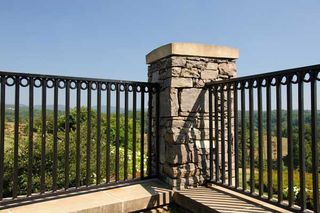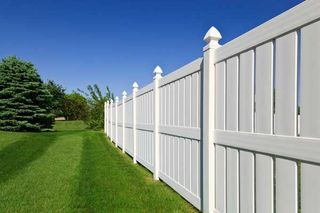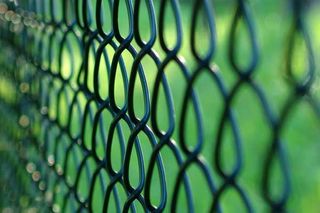CUSTOM-MADE FENCES IN APOPKA, FLORIDA
OPERATING ON FAMILY VALUES
Being a family-owned and -operated company, we understand the value of quality work, integrity and trustworthiness. Our team will work hard to earn your trust through honest, hard work to deliver the exceptional finished product you expect from us. That’s why we offer manufacturer warranty on several of our products. Ask our friendly team for more information.

OUR SPECIALTY
Although Mid State Fence
supplies a wide variety of fencing
options, we specialize in beautiful, custom wood fences
that are affordable and have the option to be highly personalized. Let us build you a wood fence that speaks to your style and personality.
If wood isn’t your first choice, choose from our durable vinyl, ornamental steel, utilitarian chain-link or affordable aluminum fences. The options are many, and our experts will work with you to determine which material will work best for your budget and your needs.
SERVICE AREAS
If you don’t live in Apopka, no need to worry. Mid State Fence extends excellent service to the following areas: Orlando, Winter Park, Maitland, Altamonte Springs, Sanford, Winter Garden, Windermere, The Villages, Mount Dora, Clermont and Casselberry. We’ll come to your location with smiling faces and serve with the utmost
professionalism.
“Upgrade your fencing today to protect your property, add curb appeal and fence in what matters. Call us today to discuss pricing and schedule a time for us to come out to your site. We’re excited to meet you and deliver you a superior product.”
OUR CUSTOMERS LOVE US
“Joseph is a great and professional installer. Very quick and respectful. Would recommend this crew for any job big or small.” –Jennifer B.
“Lewis is the Best Installer Ever!! Experience Shines! He is well deserving of a raise!!! What a great professional rep for your company! Keep up the great work!” –Stephanie H.
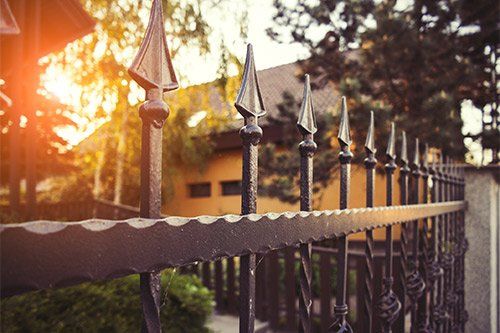
There are many benefits to adding a fence to your landscape: you increase your home's overall value, create dimension in your yard, and give your property a protective barrier.
An ornamental fence in particular adds beauty to your landscape as well as protection. There are many ways you can customize your ornamental fence to meet your needs whether you choose wrought iron, steel, or aluminum for your project.
Before you decide on ornamental fencing for your yard, talk to a
fencing contractor
about a few things.
WHICH FENCING MATERIAL SHOULD YOU USE?
Ornamental fences are typically made of metal that has been pressed and molded into intricate designs. Fencing panels and gates are typically comprised of wrought iron, steel, or aluminum. Finishes in copper or brass can be added to fencing material if you wish. Explore the differences of wrought iron, steel, and aluminum for fencing use.
Wrought Iron
Wrought iron is a durable metal that is easily molded and cast in intricate designs and patterns. Extremely weather resistant and very hard to damage, you can expect a wrought iron fence to last for many years. Wrought iron also requires little maintenance, although the material can rust if exposed to prolonged moisture. Consider painting or applying a sealant to wrought iron once installed to maintain its beautiful patina, longer.
Steel
Steel is also used in decorative ornamental fencing, although it doesn't have as much flexibility as wrought iron when it comes to intricate design work. However, steel is extremely durable, easy to install, and will not rust, making it an ideal option for your ornamental fencing needs if you want a basic decorative fence with little maintenance required.
Aluminum
Popular for its durability, aluminum is also used for ornamental fencing. While aluminum is not as strong as steel, the metal is still durable and requires very little maintenance. Aluminum also will not rust.
Aluminum, like wrought iron, can be stamped and designed in creative patterns or beautiful fencing tips that are attractive and enjoyable. Aluminum also comes in a variety of hues to match your property's design best and is very easy to install due to its lightweight appeal.
WHAT IS YOUR BUDGET
Your budget will largely determine not only the type of material you choose for your decorative fence, your budget will also determine whether you can have custom finishes placed on your fence tips or gate.
Overall, wrought iron is your most expensive option, although the hefty cost is outweighed by the fencing material's longevity.
Steel is difficult to install and is also very expensive, but like wrought iron, will last many years installed properly.
Aluminum is likely your cheapest option (depending on metal prices in your area), and if your fence is professionally installed, aluminum will last for many years. If choosing aluminum fencing, opt for powder-coated materials to increase the longevity of your fence (and to make your investment well worth it).
Have your fencing contractor measure your yard and discuss your design needs for an ornamental fence with you. Compare the costs of wrought iron, steel, and aluminum fencing together to see which option best fits your budget and design needs.
Speak to your fencing contractor about whether or not you should combine metals to complete your fencing needs: you may be able to have gates made of aluminum for decorative appeal while having the rest of your fence comprised of durable, streamlined steel, for example.
Never attempt to install an ornamental fence on your own. Instead, rely on our expert team of fencing contractors to provide you with a beautiful yard barrier. Call us at Mid-State Fence today.
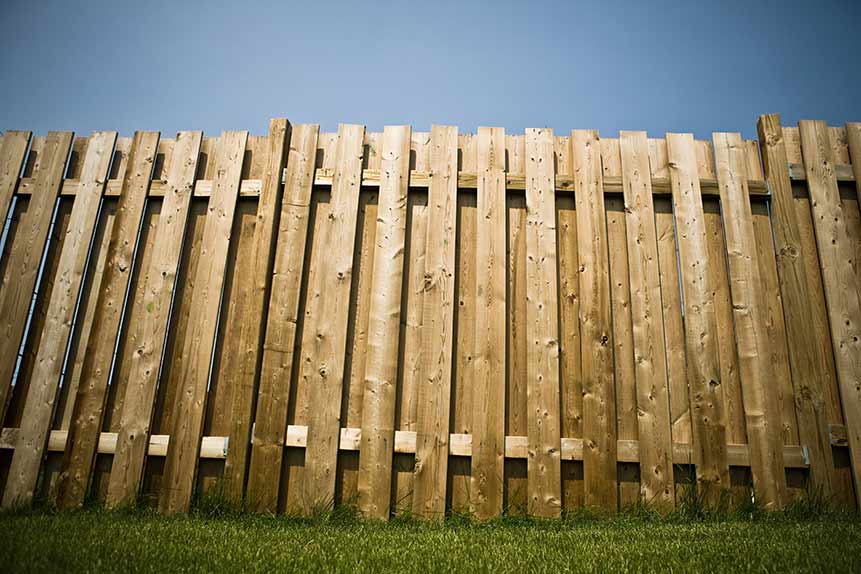
Even though winter is in full swing, balmy spring days are right around the corner. Don't wait until the warm weather is here to start preparing your outside space; instead, give it your attention now to maximize your relaxation and optimize your fun. Adding a fence to your back or front yard is an excellent way to help your family make the most of their time outside. Here are just a few ways a fence can help you get the most out of your home's exterior areas.
1. A FENCE MAKES IT EASIER FOR YOUR PETS TO HAVE OUTSIDE TIME
For many pet owners, their dogs and cats are members of the family. It only makes sense to ensure that your fence enhances their outside time as well. A fenced-in yard makes it possible for your dog or cat to safely relax in the sunshine, exercise, or play with other members of the family.
Instead of having to settle for a short walk in the mornings, your pooch can have the run of the yard while you have your morning coffee or get ready for the day. To discourage jumping in even the largest dog breeds, consider opting for a fence that is six feet in height. Combined with studious training, this height is sufficient to discourage most dogs from jumping the fence.
Vinyl fencing is an excellent choice for many dogs thanks to the large assortment of closed styles. These fence styles conceal the outside world from your dog, and for many canines, this is beneficial. It causes stress for some dogs to see other animals or humans that they are not able to actually interact with. This leads to undesirable barking or even dangerous escape attempts.
If you have concerns that your pet may try to dig out, an experienced contractor can offer a solution to prevent this from happening. For example, your contractor may need to install a portion of the fence under the ground.
2. YOU CAN ADD FUN ADDITIONS TO YOUR PROPERTY
A trampoline, hot tub, or swimming pool are exciting additions that provide your family with more possibilities for outside entertainment. However, many insurance companies label these items are liabilities. This does not mean that they do not have a spot in your yard; instead, you have to take steps to minimize your liability.
One way to minimize your liability is to install a fence. In fact, some insurance companies require a fence before they will agree to cover claims from certain items, such as pools or trampolines.
A fence helps deter curious neighbors from using your pool or trampoline when you are not home. In many areas, local regulations require you to have a fence with a locking gate if you have a pool. Fences also make recreational additions safer to use, as you can lock them and fit them with alarms so that you know if someone enters your backyard.
3. ADDITIONAL PRIVACY MAKES OUTSIDE PARTIES AND BONFIRES MORE INTIMATE
If you live close to your neighbors, this makes it challenging to entertain friends and family members. Even if you adore your neighbors, occasionally you may prefer seclusion.
A fence gives the privacy you need to host homey gatherings. When privacy is a priority, vinyl is one of the top fencing options. It comes in multiple heights so that you can customize your level of privacy.
Vinyl is also notoriously easy to maintain, leaving you with more time to spend entertaining or cooking. When it gets dirty, just use a mild soap and your garden hose to clean it off.
Is it time to add a fence to your yard? Contact Mid State Fence
today to receive a quote for a fence that satisfies your personal preferences.
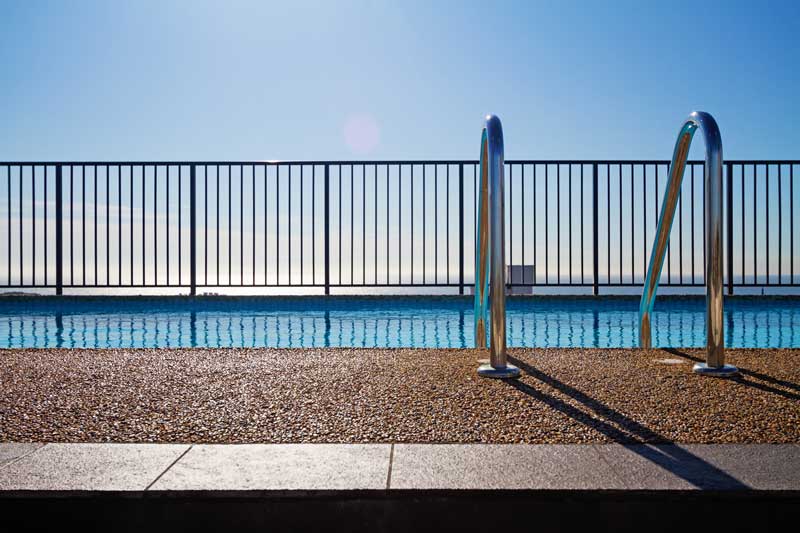
Winter in Apopka isn't exactly frigid, but it's also not necessarily pool-friendly. For this reason, winter makes a perfect time for pool construction. If you're embarking on this project this winter, make sure you're adding a pool fence to your list, as this addition can provide you and your family several benefits.
INCREASED SAFETY
Among unintentional-injury deaths, drowning is the third leading cause. Unfortunately, a significant portion of the fatalities in this group includes children who wandered near a pool without their parent or caregiver's knowledge. When a young child looks at a large body of water, they only see fun; they are unable to recognize the potential danger.
A pool fence creates a buffer that keeps the entire family safe. Whether the children are playing in the backyard or your little one sneaks away and heads outside, a fence will serve as a safety barrier that keeps your child from accessing the pool.
A fence is also a tool for keeping pets safely away from the water. Note that a fence should only be your first layer of defense; additional measures like a pool cover are recommended, and the fence should be at least 4 feet high.
INSURANCE SAVINGS
In the state of Florida, insurance protection for a home isn't exactly cheap. Between homeowners insurance, flood coverage, and hurricane coverage, protection costs can soar. Installing a fence around the perimeter of the pool can help lower this cost. When it comes to establishing premiums, insurance companies rely on risk assessments.
The greater the risks a property holds, the more expensive its coverage. The additional layer of security a pool fence affords lowers the risk value of the pool, and this reduction is often rewarded in the form of a policy discount. For some policies, a fence is required to even establish coverage.
GREATER PRIVACY
In many newer subdivisions, a great deal of space between you and your neighbor is a luxury, and given the proximity of the houses, privacy is hard to come by. For homes without a fence around the yard or for homeowners who want to enjoy their pool without the piercing eyes of their neighbors, a pool fence is a great solution for increased privacy.
Even if the goal is just to create a retreat, a fence separates the pool from the rest of the yard and gives you the privacy you desire. If you're just looking for a subtle level of privacy, you can have an aluminum fence installed, but if you want increased coverage, install a vinyl fence.
STYLE ENHANCEMENT
At the end of the day or workweek, coming home isn't just relaxing because you're in your own space. The attractiveness of your home can also give you a sense of peace. A pool can make your backyard just as pleasing to the eyes as other areas of your home.
One reason for this is that pool fences come with a vast range of design options, including material selections, such as aluminum or vinyl. A fence can also be fashioned at the height of your choice and with any additional style elements, such as ornamental designs.
An installer can also assist you in selecting a fence that complements your home's exterior and landscaping.
Even if you have an existing pool or you are moving to a property that already has a pool, a fence can be just as beneficial to you and your family. A fence installation expert can sit down with you to help you select the appropriate design and style of fence to meet your needs. At Mid State Fence, we are more than happy to assist with this process.


